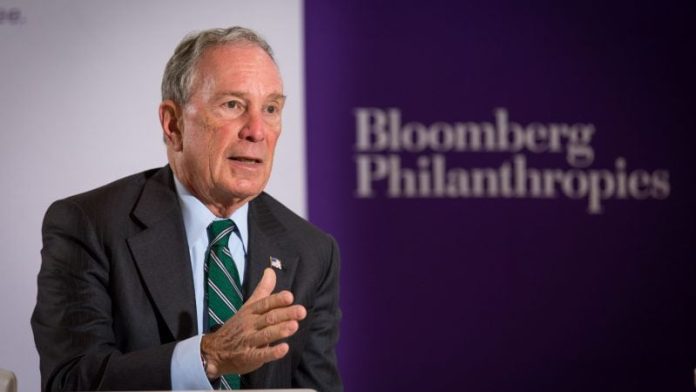Nine US cities will each receive $1 million from Bloomberg Philanthropies to implement smart solutions to tackle homelessness, drugs, mobility, climate change, and economic opportunity.
The charity, set up by former New York mayor Michael Bloomberg (pictured), challenged city leaders in the US a year ago under its ‘mayors’ challenge’ programme to research and develop “bold, inventive ideas to confront the toughest problems” faced by cities.
The nine winners are Denver, Durham, Fort Collins, Georgetown, Huntington, Los Angeles, New Rochelle, Philadelphia, and South Bend. Details of each cities smart city projects can be found below.
Bloomberg commented: ”Mayors across the country are tackling the big issues that Washington is ignoring. This competition is designed to help them do even more, by incentivising and supporting big – and achievable – new ideas.”
Bloomberg Philanthropies said it has pumped more than $17 million into 300 cities over the last year through workshops, coaching, testing, and awards.
Each of 35 ‘champion’ cities in the running for the prize received up to $100,000, as well as technical assistance, to test and build support for their ideas over six months.
The testing phase sought to bring prototyping and small-scale implementation to cities. They conducted over 100 tests, involving more than 4,000 city hall staff and 15,000 residents, said Bloomberg Philanthropies. The cities raised over $15 million in outside funding.
Judges evaluated cities on their vision, potential for impact, implementation plan, and potential to spread to other cities.
The ‘mayors’ challenge’ is part of Bloomberg Philanthropies’s ‘American cities initiative’, a suite of investments to strengthen city halls and advance critical policies.
Bloomberg Philanthropies has sponsored smart city challenges previously, in the US in 2013, Europe in 2014, and Latin America and the Caribbean in 2016. Previous winners include São Paulo, in Brazil, with a program to increase farmers’ income and reduce urban sprawl; Barcelona, in Spain, for work to create digital trust networks that support at-risk elderly citizens; and Providence, Rhode Island, in the US, for a programme to measure and reduce the ‘word gap’ among low-income children.
• Denver, CO – will work to improve air quality by installing cutting-edge air-pollution sensors around schools that will provide data to inform the city’s approach to making the air safer for all.
• Durham, NC – will work to get drivers out of their cars and into alternative modes of transit by incentivising behaviour change, for example with prizes.
• Fort Collins, CO – will work to make housing safer and more energy efficient for low-income renters by offering landlords a creative mix of low-cost financing, simplified underwriting, and pre-screened contractors.
• Georgetown, TX – will become the first energy independent community in the country by partnering with residents to install solar panels and battery storage at their homes.
• Huntington, WV – will support first responders on the front line of the opioid crisis by embedding mental healthcare professionals within emergency response departments, ensuring that first responders are able to give the best care possible to opioid users.
• Los Angeles, CA – will develop a new way for residents to help solve the city’s homelessness crisis by building additional units of housing on their property and renting them to Angelenos who are homeless or at risk of homelessness for an agreed upon period of time.
• New Rochelle, NY – will improve development projects by using virtual reality technology to clearly present plans for new buildings and public spaces to residents.
• Philadelphia, PA – will work to make the justice system less traumatic for young people under 18 by creating new facilities specifically designed to address trauma and connect kids with resources rather than sending them to regular police stations.
• South Bend, IN – will help low-income and part-time workers with unreliable transport options commute to their jobs by partnering with ride-share companies and employers, who will help offset the cost.

